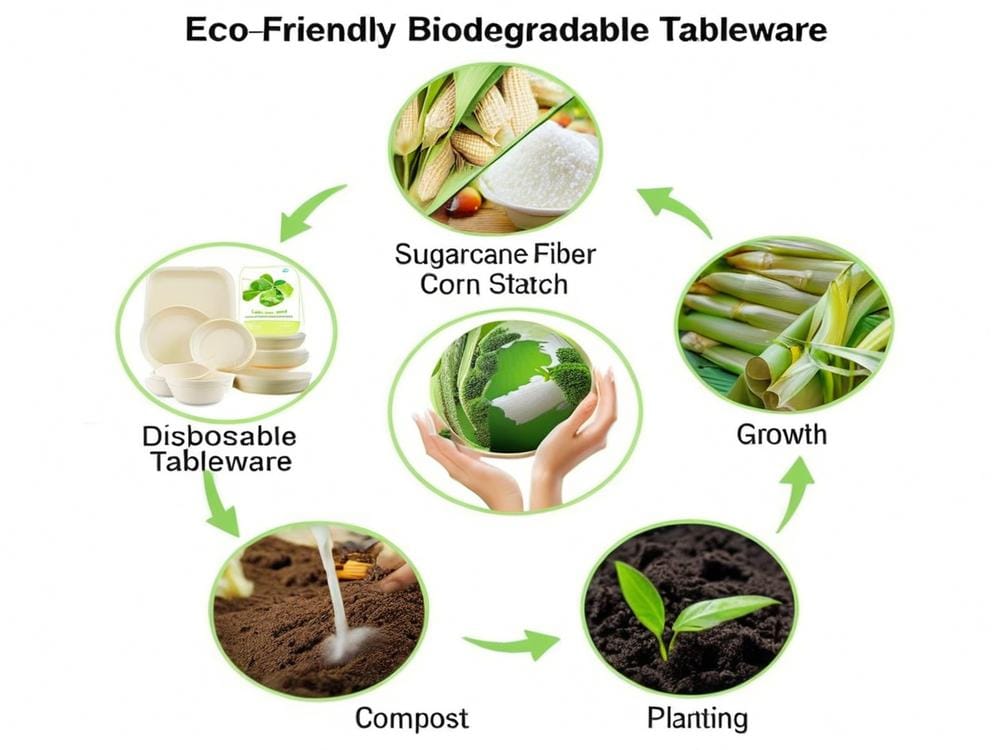について パルプ成形工程 is a manufacturing technique used to produce molded pulp packaging—a sustainable and eco-friendly alternative to traditional packaging materials like plastic or Styrofoam. This process involves converting fibrous raw materials into packaging products, such as sugarcane bagasse, recycled paper, cardboard, or natural fibers. These products are biodegradable, compostable, and recyclable, making them a popular choice for environmentally-conscious industries.
As a well-known Chinese molded pulp packaging manufacturer, Bioleader has focused on the pulp molding process for more than 10 years. This article introduces a complete production process for making disposable pulp tableware based on sugarcane bagasse pulp material.
原材料の調達と準備
The quality of molded pulp packaging produced depends on the quality of sugarcane bagasse procured. The bagasse collected is transported to the manufacturing facility and stored there in a controlled environment to avoid deterioration.




サトウキビパルプ板
パルプと特定の含有成分の明るさや白色度を向上させるために、二次ダイオキシン排出毒性(SDET)フリーの制御漂白が採用されることがある。これが行われた後、パルプはふるいにかけられて、存在する可能性のある汚染物質が取り除かれ、良質の最終製品が得られる。この場合、湿ったサトウキビ繊維の加工後、製品はサトウキビパルプでできたボードとして現れ、保管や出荷が容易になる。
パルプ工程

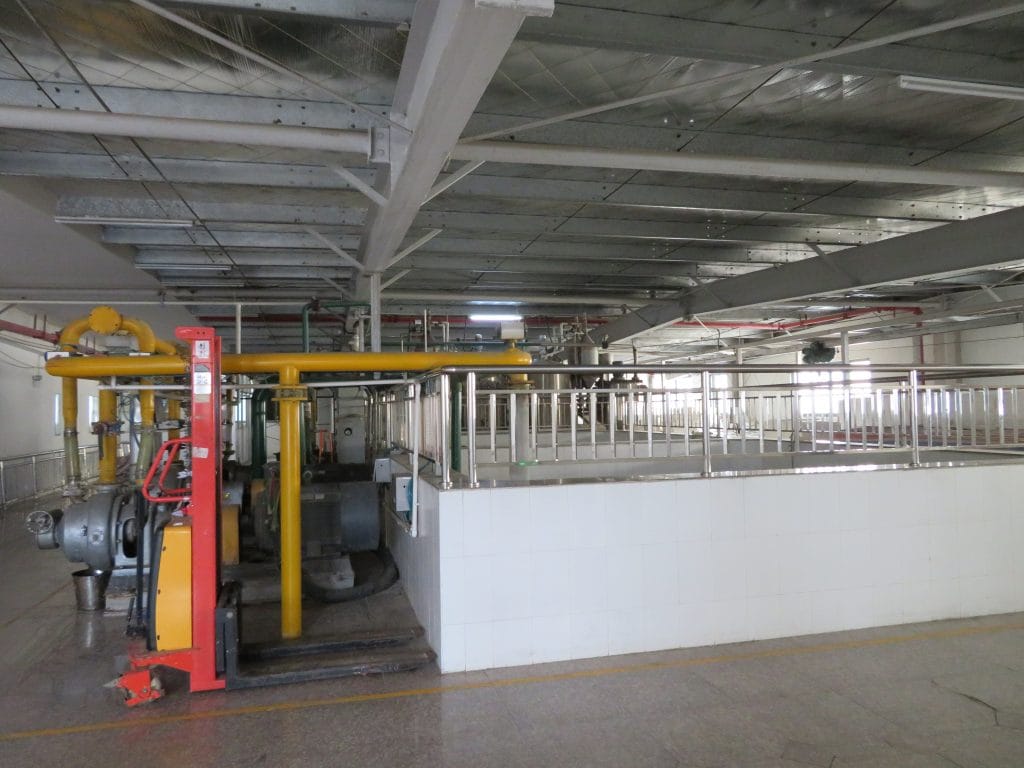
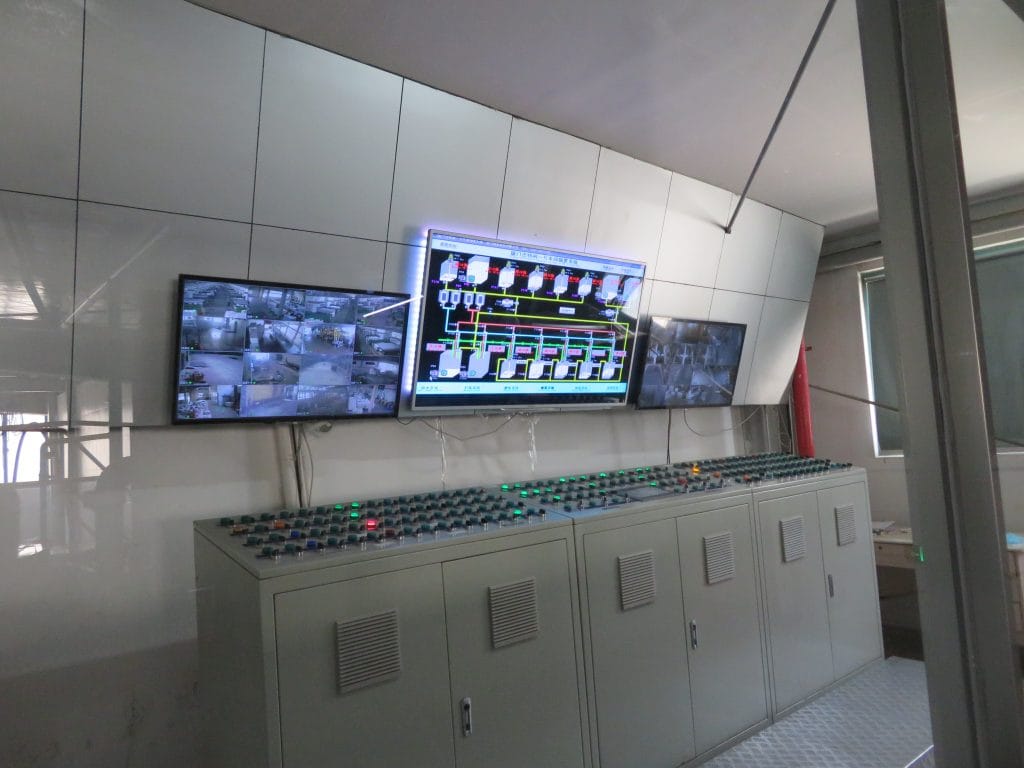
サトウキビパルプの板は細断され、汚れや繊維質以外のものを取り除くために徹底的に洗浄される。この工程では、洗練された機械が使用され、バガスを単に滑らかな粗パルプに分解します。
添加物の組み込み
耐水性、強度、柔軟性など、食器の特定の特性を向上させるために、多くの添加剤が慎重に選択され、パルプに配合される。これらの添加物の配合は、パルプとの整合性と、製品の環境適合性を維持するための使用後の分解能力によって決定される。今のところ、水と油の両方にフッ素バリアコーティングを施しています。
成形、ホットプレス、整形



To make tableware such as plates, bowls, and food containers of different shapes and sizes, the machine compressed the blended pulp mass into a special column that contained sets of plates, wherein each plate had a recess containing desired shapes.
The main パルプ成形工程 of this step: The molding procedure uses compression and heat to shape the pulp material according to the formed mold, which helps to achieve the required finish that is smooth and fine. The tableware is then exposed to a controlled drying operation whereby excess moisture critical for the structure of the product is removed by heating and dehydration built into the machine’s bulk.
Drying
The wet molded product is transferred to a drying station, where it is heated to remove moisture. Drying methods include oven drying, infrared drying, or natural air drying, depending on production scale and efficiency needs. (This step is usually connected to the previous step).
エッジ・トリミング
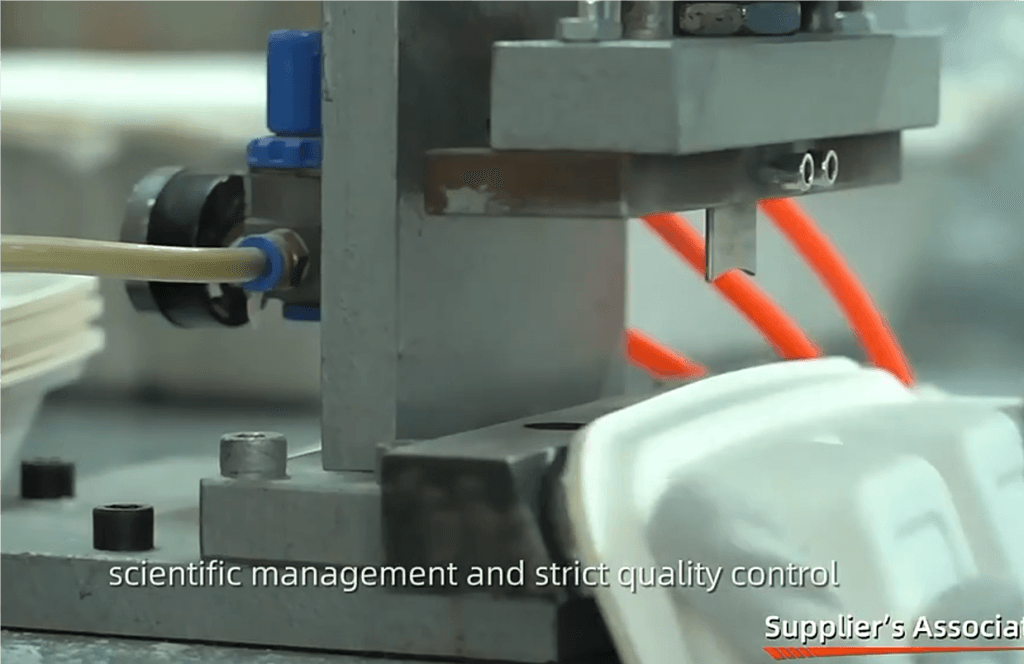

There are currently two main types of machines prevailing on the market. one is a fully automatic machine that doesn’t have any trimming operations – towards the end of the pulp molding process the required product shape is achieved by direct trimming of the edges on the molding machine Sullivan…. The mold is fitted around the still plastic products and a scraper is used to clean the edges of the molded articles to which various fine trims of little specifications are obtained for the molded pulp packaging products.
表面処理と仕上げ

To improve the usability and aesthetic of the tableware, other than food-grade water and oil-resistant coatings on the articles, additional surface treatments are also carried out. The finishing pulp molding process will also include giving soft surfaces, edge rounding out, surface polishing, and placing permissible foods and hygienically acceptable decorations.
検査、品質保証、管理


Bioleader’s strict quality control measures are also taken at all stages of production to guarantee that the tableware will be of international standards regarding safety, eco-friendly, and resilience. Each molded pulp packaging product undergoes both manual and machine inspection whereby all flaws, accurate shapes and measurements as well as adherence to the design are ensured.
金属探知

Sometimes the screen wires might break and mix up with the product due to the use of a metal pulping screen in the product molding process. Hence, all the items made by Bioleader are metal tested to eliminate any metal parts leaking from the machine that could blend with the completed output.
耐水・耐油試験

Most of our products are for disposable tableware use and thus need to be resistant to water and oil. Since these are plastic products, we sample some pieces of each batch to test whether they leak and soak the samples in water and oil for 6 to 12 hours.
パッケージングとブランディング



There is a need for molding and packaging tableware for them to withstand the rigors of transportation and storage. The use of molded pulp packaging materials is of mind for the eco-friendly concept and the design is simple and easily disposable because of the nature of the product.
完成品保管
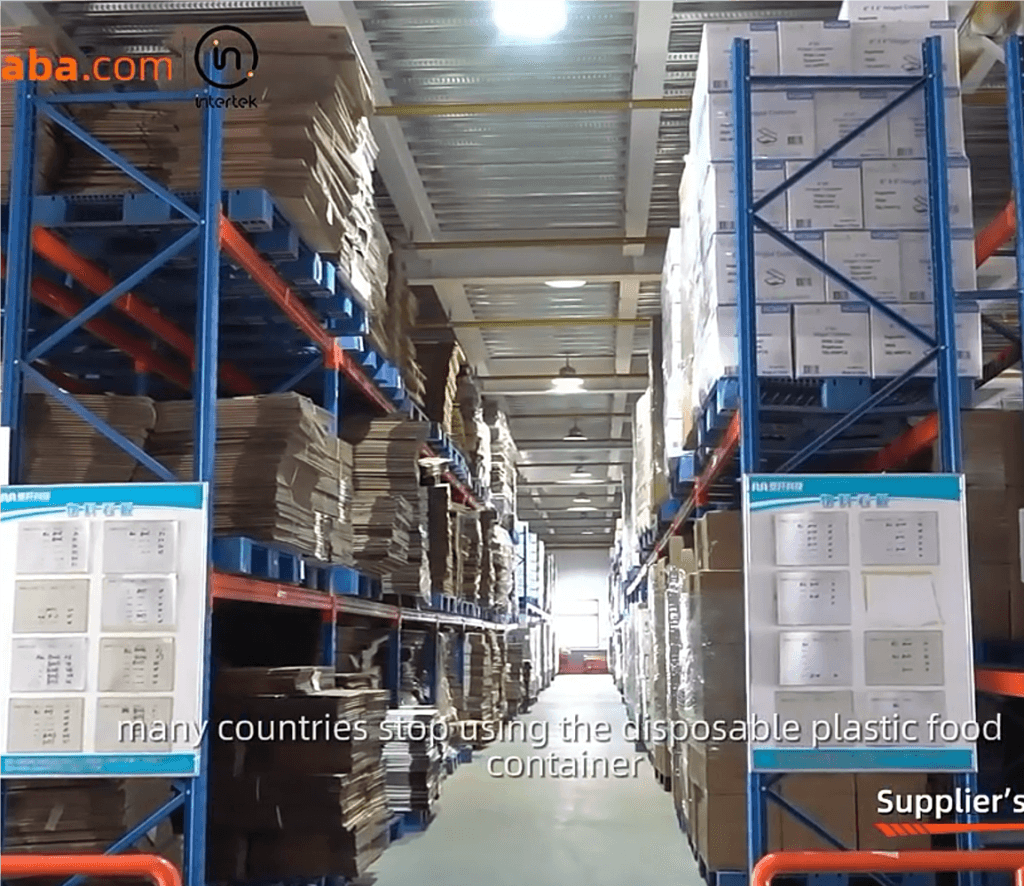
私たちの倉庫で梱包された製品を整理する際には、輸出コンテナを待つ際に遵守しなければならない既存の製品倉庫システムがあるため、秩序があります。
Export, Distribution, and Market Access
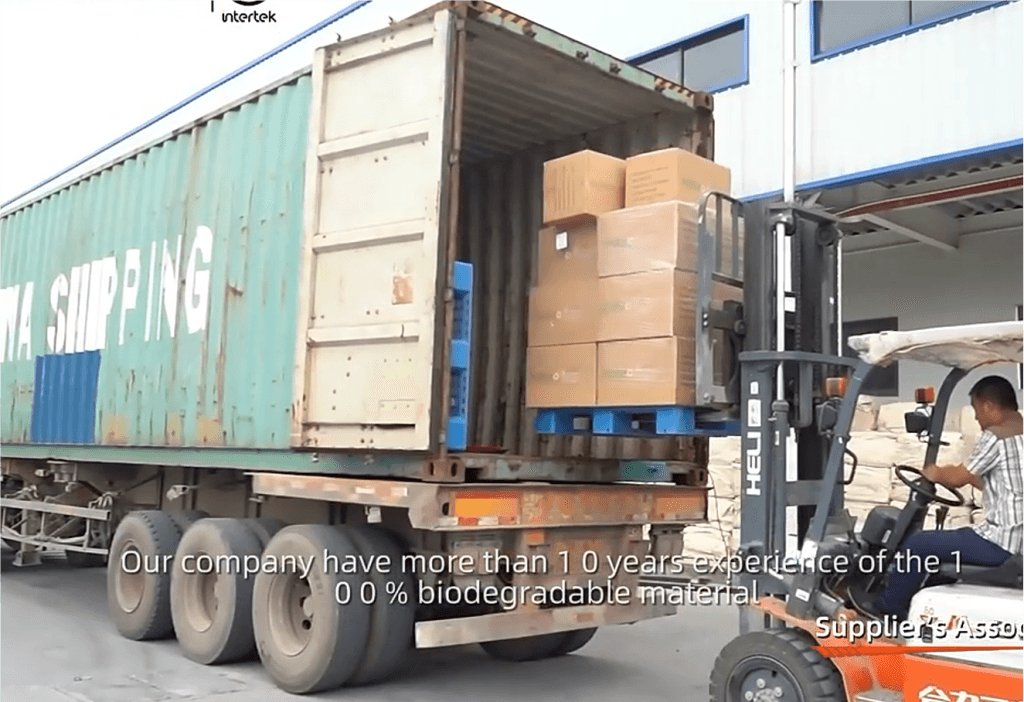
Containers are loaded and cargo ships set sails on directives issued by the buyers for exports. The finished molded pulp packaging tableware is kept in quality preservation conditions to avoid alteration in quality and then sold in the different explored markets. The perspective of the marketing communication is aimed at persuading households to accept the use of tableware made of sugarcane bagasse through advocacy on its ecological benefits.
Benefits of the Pulp Molding Process
· 環境にやさしい: Reduces reliance on plastic, minimizes waste, and uses recyclable and biodegradable materials.
· 汎用性: Can produce a wide range of products for different industries, including food, electronics, and healthcare.
· 費用対効果: Utilizes inexpensive raw materials and is energy-efficient.
· Customizable: Molds can be designed for specific product requirements, offering flexibility in shapes and sizes.
This process is an essential part of creating sustainable packaging solutions, aligning with global efforts to reduce environmental impact.

